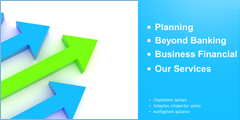Equipment Lease / Financing
Equipment financing is the use of a loan or lease to purchase or borrow hard assets for your business. This type of financing might be used to purchase or borrow any physical asset, such as a restaurant oven or a company car. There is an enormous number of variations on equipment financing that cater to specific types of businesses and equipment. The most important thing to understand about equipment financing, broadly speaking, is that it’s for financing a physical asset. Why does this matter? Unlike with, say, a working capital loan, the asset you’re purchasing serves as a kind of collateral. If you default on your loan or lease, the lender can repossess the asset. Because of this, equipment financing tends to be a more cost-effective and lower-risk way to acquire equipment than other forms of financing.
Whether you’re running a restaurant, a construction company, or even working out of your home, chances are your business needs equipment to perform its basic functions. If you can’t pay for equipment out of pocket, your best option may be to seek equipment financing. While equipment financing might sound pretty straightforward on the surface, exploring this seemingly niche area of financing can be a bit like falling down a rabbit hole.

When you’re seeking equipment financing, you’ll generally want an idea of what you’re buying before you even contact your equipment financer. You’ll also want an idea of who you’re planning to buy it from.
That’s because, in most cases, your equipment financer is covering either all or a percentage of the cost of your equipment. In fact, many equipment financers will directly pay the vendor for the equipment without the money ever entering your bank account.
The exact terms of your financing will differ depending on whether you’re getting a loan or lease (more on this below), but most equipment financing terms last somewhere between two and seven years. Over that time, you’ll typically make monthly payments to your equipment financer to pay off the principal plus interest. Should you default on your loan or lease, your equipment financer will typically repossess your equipment to resell it.
In addition to the initial cost and obsolescence, leasing your equipment can also provide your business with a substantial tax advantage. While you should always consult with your tax advisor first, most equipment leases can be structured so that you can write off 100% of the annual lease payments. By contrast, current tax laws only allow a business to write off the interest paid on loans. However, because a lease is a rental and the business is only using the equipment, the business can usually write off all of the monthly lease payments just like any other legitimate business expense.
The last major advantage of leasing your equipment instead of buying is that leasing allows you to not show the equipment on your balance sheet. Once again, this is because the equipment is being rented and therefore actually belongs to a different company than the one that is using it. For this reason leases are often referred to as “off balance sheet” financing and this can be a tremendous advantage to many businesses both large and small.
Big businesses prefer this option because they don’t want to own millions of dollars in equipment. This equipment will depreciate substantially with the day-to-day usage. Whoever owns the equipment is responsible for the depreciation on their balance sheet. Also, large corporations may require that the board of directors approve any new loans to the business since. This can make it difficult for the management of the business to operate efficiently. But a lease is not a loan and therefore may not require approval by the board for the managers to get the equipment they need. In smaller businesses this can also be an advantage because they will not show additional debt on the balance sheet that will affect their ability to borrow money in the future. If you are considering selling your business, this may also make your company more attractive to potential buyers since you will be showing less debt on the balance sheet.
Read MoreConsiderations

Often the price of a business loan is stated in terms of an interest rate, points and other fees. A point is a fee that equals 1 percent of the loan amount. Points are usually paid to the lender, Business Finance Consultant, or both, at the settlement.
Often, you can pay fewer points in exchange for a higher interest rate or more points for a lower rate. Ask ACE Capital Resources about points and other fees.
Read MoreThings You Should Know!
If you see advertisements for lenders offering extremely low rates, don't be misled. Most of the time these very low rates refer to the starting rate on an adjustable rate mortgage or graduated payment mortgage. In other cases, the rate advertised may be for a balloon loan. This is a loan where the remaining balance will have to be paid off early. An example of this is called a 30 due in 5. In this type of loan your payments are based on a 30-year term to make them affordable.
The remaining balance of the loan however, must be paid off at the end of the 5th year. This means that you will probably have to refinance the loan or sell the house at the end of 5 years to satisfy the debt. Locking in your rate or point at the time of application or during the processing of your loan will keep the rate and/or points from changing until settlement or closing. Ask if there is a fee to lock-in the rate and whether the fee reduces the amount you have to pay for points. Find out how long the lock-in is good, what happens if it expires and whether the lock-in fee is refundable if your application is rejected.

There is no single nationwide finance rate; interest rates can vary according to the amount of the business loan, the length of the loan and from lender to lender. Look at the entire package that's being offered, including the fine print about penalties and assumptions. The more knowledgeable you are about the loan process, there will be fewer surprises in store for you at closing.
Lease or Buy?
The first thing you need to know about equipment leasing is that it is 100% financing. Because a lease is essentially a "rental" of equipment, there is usually no down payment required to access the equipment your business needs. This directly contrasts most commercial bank equipment loans, which require a minimum of 10% and as much as 50% down payment. By comparison, most equipment leases will require only the first and last payment in advance of delivery. Even if you only need a small amount of equipment, this can result in a tremendous reduction in the "out of pocket expense" necessary to upgrade your equipment. This gives you the opportunity to put thousands of dollars of working capital back into your business, instead of giving it to your banker.
Apply Now!Financial Calculators
Equipment Lease & Loans
If you don't understand the difference between a lease and a loan, you are not alone. Many business owners continue to finance their equipment the "old fashioned" way, through loans, because they don't fully understand the potential benefits of leasing their equipment.
These benefits can be seen in four important areas, initial cost, equipment obsolescence, tax benefit and off balance sheet financing. Because of these benefits, many business owners are realizing that they do not need to own their equipment in order to conduct business. They only need to use it.
Helpful Tips
-
Economic Obsolescence occurs when a business equipment cannot keep up with the demands of the market or lacks the technology to help the business remain competitive. Leasing helps avoid obsolescence by allowing you to upgrade every few years. In other words, if the equipment appreciates, buy it. If the equipment depreciates, lease it.
